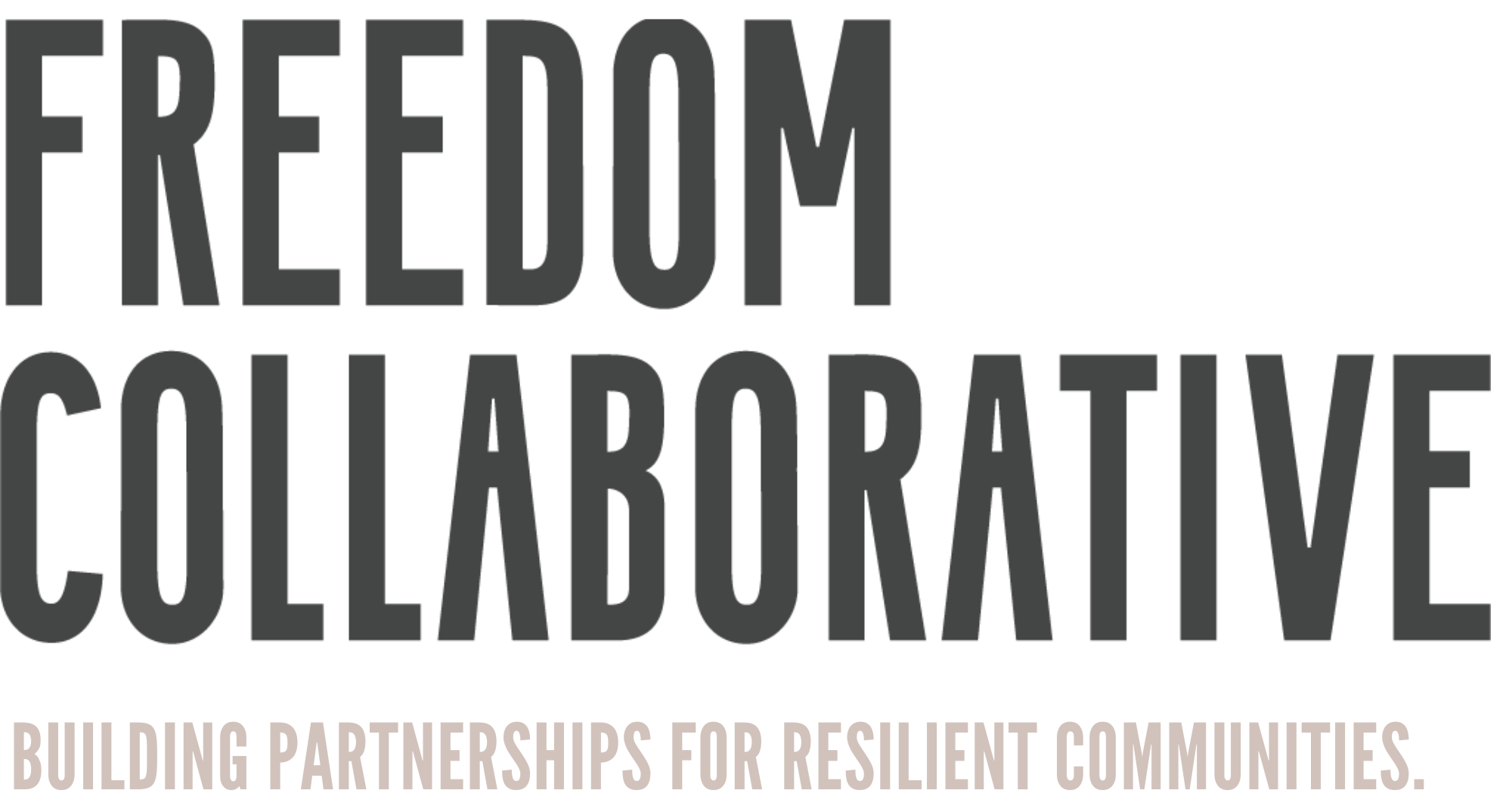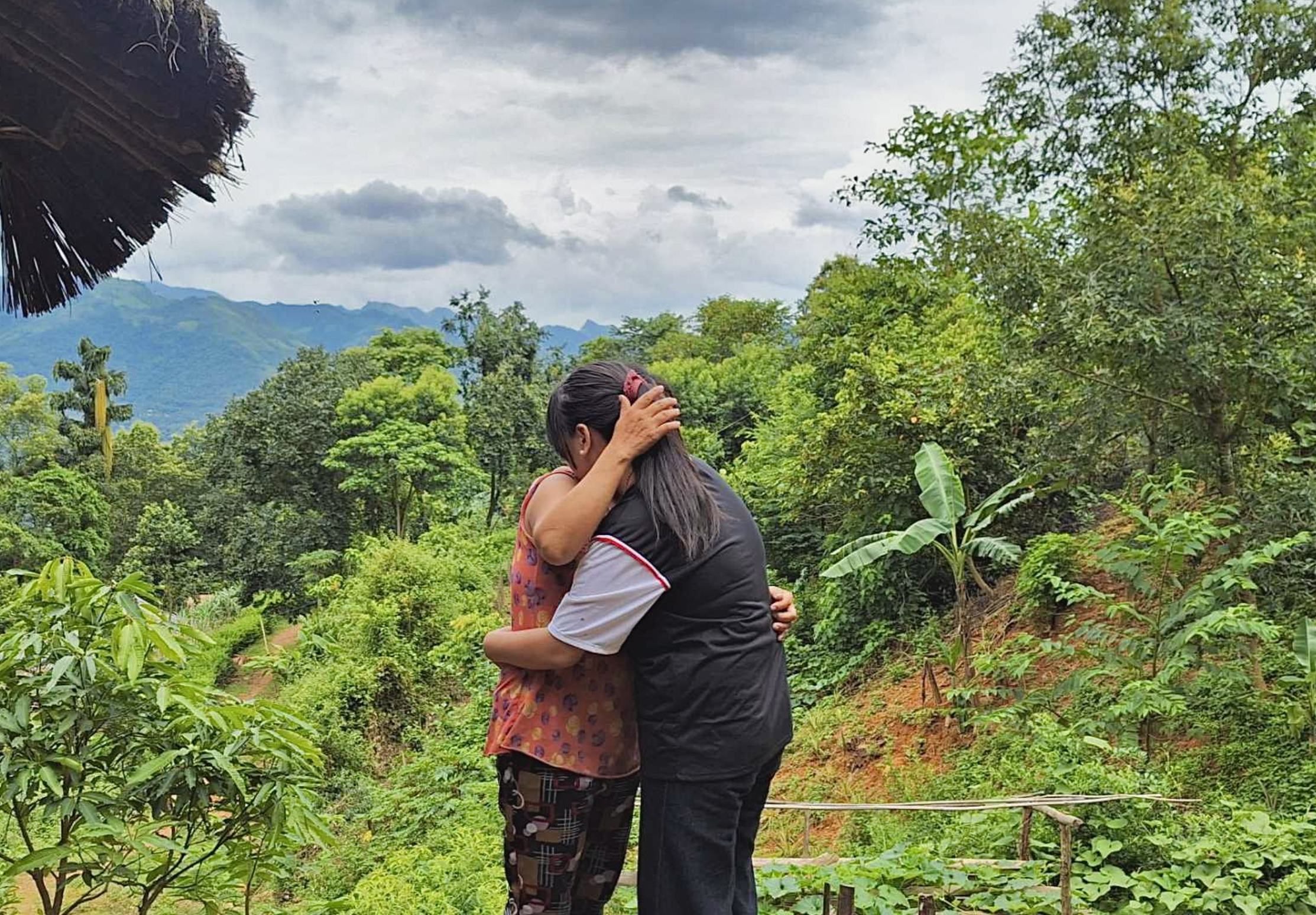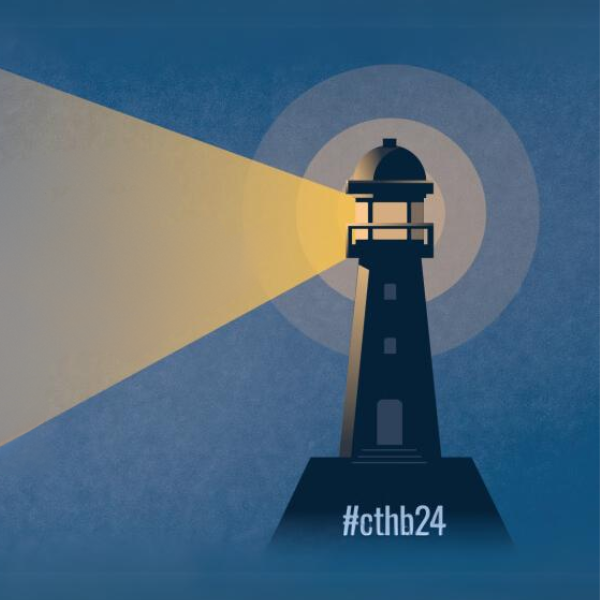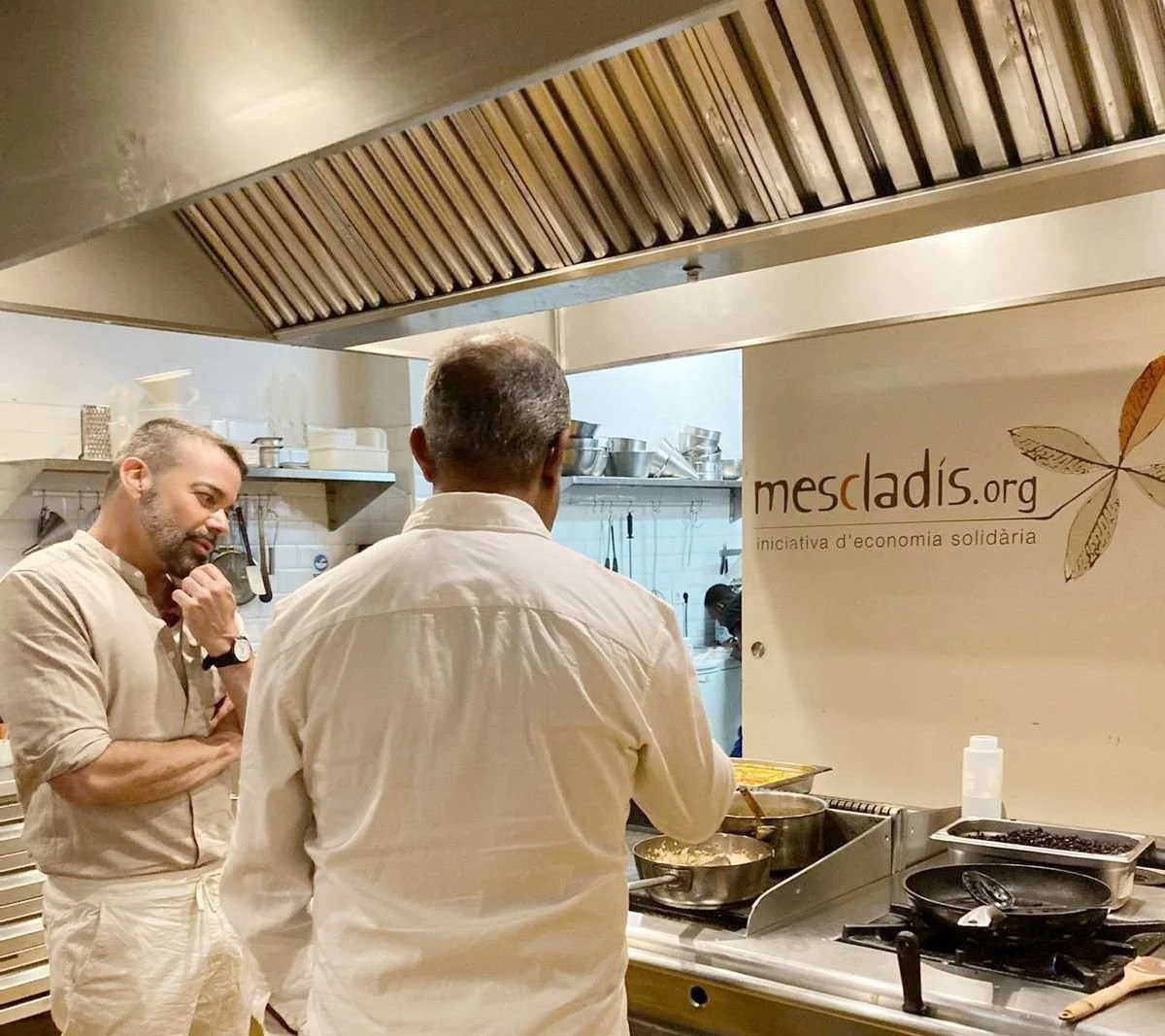Combating trafficking in Asia: Insights into partner efforts and frontline activities during the global pandemic
AMKAS Nepal launches a mask-making business for returnee migrants, WYESHR discovers a shocking number of underage girls in the sex worker sector, and Winrock International publishes a legal manual for practitioners in Southeast Asia.
AMKAS Nepal takes a selfie as they successfully complete their first mask making workshop for female returnee migrants.
Welcome to the August edition of Freedom Collaborative’s Asia newsletter. This month we showcase the strength and resilience of our Asian partners as they continue to protect the vulnerable during the global pandemic. In this edition we will be providing updates on our partners in both South and Southeast Asia, looking in particular at ways in which they have successfully managed to change their programming to tackle the consequences of COVID-19 related problems and help their clients stay safe. We also offer updates on our activities, and those of our partners, which have proved significant in the fight against modern slavery this month. Highlights of anti-trafficking news in the region can be found in the current affairs section, which follows August’s Contributor of the Month, Bijaya Rai Shrestha from Aaprabasi Mahila Kamdar Samuha (AMKAS) Nepal, who has been tirelessly working to provide mask-making workshops for returnee female migrant workers.
Thank you to Eden Ministry, WYESHR, AMKAS Nepal, and all our partners and contributors for collaborating with us on this newsletter.
Please keep sharing your updates with us via our Facebook group or by email.
PARTNER UPDATES
Eden Ministry | Myanmar
Eden Ministry has been tirelessly offering support to Myanmar’s most at-risk communities throughout the global pandemic. Like many others, Eden had to pivot a lot of its work to meet new needs arising from the effects of COVID-19. Its outreach team has provided medical advice and prevention education, including tips on personal hygiene and social distancing, throughout some of the country’s poorest neighborhoods. Both local and national governments have acknowledged the essential nature of this work and have given Eden unprecedented support to continue its outreach projects in these neighborhoods during periods of lockdown.
The team behind vocational programs at Eden also found an opportunity to pivot the focus of its work, and its clients can now add sewing to their list of skills. The organization’s new brand, MyanMask, has temporarily replaced the highly regarded Eden Jewelry program the women were previously running. They have partnered with two other local NGOs, New Hope Myanmar and Livelihoods and Food Security Fund (LIFT), with the goal of producing and distributing 16,000 liters of soap and more than 35,000 reusable face masks to those in vulnerable and under-served areas. This program shift allows the women of Eden to provide protection and spread hope through their own communities.
Throughout the year, Eden Ministry has committed to rising up and reaching out to those in need during times of emergency. Learn more about their work.
AMKAS | Nepal
AMKAS Nepal has been continuously working throughout the lockdown period to provide care and assistance to the many female returnee migrants who have been streaming back across the border as a direct result of the global pandemic. In coordination with IOM and the Nepalese Army, the AMKAS team has undergone various orientation and protection workshops to better support the clients in their shelter, and any new arrivals. One of their most significant activities has been the introduction of mask-making workshops, in which both the team and their shelter-home clients have learnt to make cloth masks, hundreds of which are then distributed to newcomers and anyone in need as they arrive back in Kathmandu. This income-generating program was only successful because of The Asia Foundation (Nepal) and AMKAS’s rapid response to the mask shortage problem. The AMKAS Nepal team has also been very busy serving and supporting distressed returnee women migrants to help them fully reintegrate back into their families and communities as they return from the horrendous conditions in detention centers in Kuwait, Qatar and Dubai. Thanks to Winrock International (Hamro Samman), The Asia Foundation, UN Women, IOM, and Nepal’s Covid-19 Crisis Management Centre for their continued support in helping AMKAS fulfill its goals and continue fighting for the rights of female returnee migrant workers.
WYESHR | Nepal
Women Youth Empowerment in Social Service and Human Right has continued its food and emergency relief distribution efforts throughout the lockdown period in Nepal. In the second phase of distribution, the organization was able to reach out to 500 families in collaboration with The Freedom Fund and Lung Ta Nepal. This distribution solely focused on providing supplies to adult entertainment sector (AES) workers, single mothers, brick factory workers, underprivileged families and female sex workers (FSW).
While the distribution efforts were very successful, the team was shocked to discover a high number of children under the age of 16, and women over the age of 50, in the FSW sector. This shows that the situation for AES workers in Nepal is much worse than previously reported and that efforts need to be made to support women and children in this group. The following findings demonstrate why more attention must be focused on this sector. In a poll of 50 female sex workers:
20 were victims of child marriage
six were suffering from high fever which could have been a symptom of COVID-19
Most of the under-aged FSW were prone to trafficking because they were trying to reach various countries by changing their citizenship documents and passports to increase their stated age
Child FSW are in great demand so there is a high chance of rape, violence and abuse
Many FSW have children and most are single mothers so their children are also very vulnerable to commercial sexual exploitation and COVID-19
Overall, the team demands that more research be done in this field, especially when it comes to government accountability. While prostitution may be illegal in Nepal, a collaborative effort needs to be made to tackle the problems that arise in this sector, especially when it comes to acknowledging the gravity of the issue.
CURRENT AFFAIRS And News
Myanmar
‘The influx of foreign aid workers has driven up housing rents in the area, while wages for laborers have gone down because many Rohingya are prepared to work for less than local workers,’ writes Bertil Lintner in the article Rohingya refugees becoming Palestinians of Asia for Asia Times.
India
Read this fantastic op ed on how the pandemic is heightening trafficking risks, especially in countries like India, by Archana Datta for The Statesman.
Macau | Hong Kong
The Apprise Audit app could be the solution to tracking and preventing forced labor and trafficking in the manufacturing sector, says Kylie Knott. Read more on how technology can help combat modern slavery.
South Korea
‘More than 42% of foreign wives reported having suffered domestic violence – including physical, verbal, sexual, and financial abuse – in a 2017 poll by the National Human Rights Commission. By comparison, about 29% of South Korean women surveyed by the country's Ministry of Gender Equality and Family last year said they were victims of domestic violence – again including a range of forms of abuse,’ according to CNN Global.
Nepal
According to the US Labor Department, approximately 300 Nepalis have filed compensation claims for deaths or injuries in the US war zones. And there are still hundreds of thousands Nepali migrant workers wanting to return home and this number is growing with the expiry of more visas.
Asia Pacific
Girls are being taken out of school and face ‘poor prospects’ as the pandemic forces women and children to face violence, cyber-sex trafficking and child marriage, writes Madeleine Keck in this Global Citizen article.
CONTRIBUTOR OF THE MONTH
Bijaya Rai Shrestha | Aaprabasi Mahila Kamdar Samuha Nepal (AMKAS Nepal)
Once a returnee migrant herself, having lived and worked in Japan, Bijaya Rai Shrestha wanted to use her knowledge and experience to give back to this population, especially female returnee migrants, who often slip through the cracks and gaps when it comes to receiving support and aid from the government.
Upon her return, she decided to focus her efforts on promoting and protecting the rights of Nepal’s migrant workers – before they leave, while they are working away from Nepal, and on their return. Bijaya is now the Chairperson and Founder of AMKAS (Aaprabasi Mahila Kamdar Samuha) Nepal, an NGO she established in 2016 to support Nepalese migrant workers returning to the country.
Bijaya has extensive experience in this field and was the co-founder and executive director for POURAKHI Nepal, and chairperson for Srijanshil Pourakhi Savings and Credit Cooperation. Bijaya’s work focuses on migration and trafficking, specifically returnee women migrant workers and their families. She works with others in civil society and with policy makers to press for change within government and society in general.
Bijaya’s work has showcased the positive outcomes associated with migration, and her organization has used the media to highlight the successes of Nepalese migrant workers, specifically women. Bijaya and her team have also set up several income-generating programs for returnee migrant women. Please do take some time to follow her and AMKAS’s efforts.
OTHER UPDATES
The new UX and VCMS Lite Webinars
As you may have read in recent newsletters, Liberty Shared has launched VCMS Lite, a simpler and more user-friendly case management interface with offline capabilities. While the launch took place in late July, during August the focus has been on partner feedback and onboarding. We are pleased to announce that the new UX has been greatly appreciated by many of our partners and represents a formidable opportunity for us to provide more on-the-go services to the global network. In August we introduced the new UX to partners and donors via a series of webinars, and were delighted with the high attendance levels and positive feedback we received.
New resource for practitioners from Winrock International and the NEXUS Institute
Winrock International, under the USAID Asia CTIP program, has released a new publication, Trafficking Victim Protection Frameworks in Cambodia, Indonesia, Lao PDR, Thailand and Viet Nam: A Resource for Practitioners. This resource manual is centered on victim protection, and focuses on identifying, assisting, referring and reintegrating victims of trafficking using international definitions and obligations as set up by the Palermo Protocol (UN TIP Protocol). ‘This publication provides an overview of the legal and policy framework in place for the protection of trafficking victims in five countries in Southeast Asia (Cambodia, Indonesia, Lao PDR, Thailand, and Viet Nam), outlining the various instruments, procedures and materials that exist in each country. It offers practitioners step-by-step guidance on the process of victim identification, referral, and assistance in each country, including the various agencies and institutions responsible for this work.’
Share your news
Post your experiences from the field and initiatives to feature






